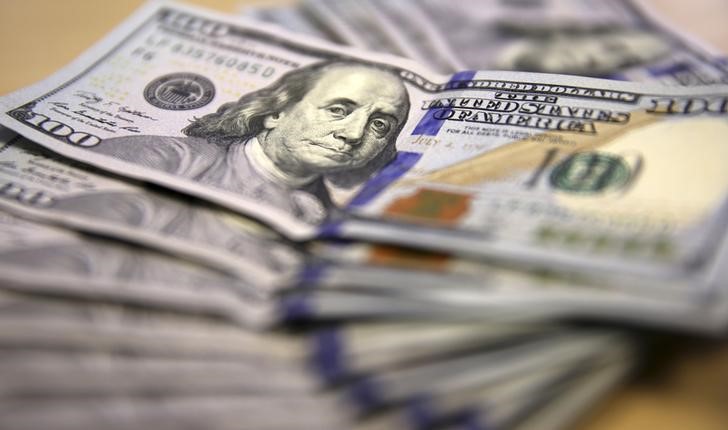* China seen making Fed wait longer before hiking rate
* Aussie slips, China inflation softer-than-forecast
* Kiwi rebounds after RBNZ chief comments
* Euro zone output, US retail data sales in focus
By Hideyuki Sano
TOKYO, Oct 14 (Reuters) - The U.S. dollar wobbled near a 3 1/2-week low against a basket of currencies on Wednesday as further signs of weakness in China fanned expectations that the U.S. Federal Reserve will have to wait longer before any policy tightening.
The Australian dollar slid further from two-month highs as a relief rally in various commodities and risk assets appeared to be running out of steam.
"It seems the rally in risk assets is over after investors covered their short positions. I suspect share markets will not have an easy time for now as investors look to earnings, so the dollar is likely to be capped as well," said a trader at a major Japanese bank.
China's price data showed annual consumer inflation slowed more than expected to 1.6 percent in September, below market expectation of 1.8 percent, from 2.0 percent in August.
The inflation number, coming a day after data showed Chinese imports fell 20 percent in September, suggested the economic picture in China is still cloudy, likely constraining the Fed's ability to raise interest rates.
The dollar index stood at 94.692, just above Tuesday's low of 94.539, which was its lowest since Sept 18.
Against the yen, the dollar dipped 0.1 percent on Wednesday to 119.61 yen JPY= , near Tuesday's low of 119.55, its lowest level since Oct. 2. But the Japanese currency was hampered by expectations that the Bank of Japan could unleash stimulus at the end of this month.
The euro on Tuesday rose to $1.1411, its highest in 3 1/2 weeks, and last stood at $1.1394 EUR= , with its Sept. 18 high of $1.1460 seen as a possible target.
The U.S. dollar's weakness against other major currencies has not been helped by the latest comments from Fed officials.
Fed Governor Daniel Tarullo told CNBC television he does not expect the economy to be ready for a rate hike this year, while St. Louis Fed President James Bullard said an October rate rise is unlikely.
The Australian dollar slipped 0.3 percent to $0.7211, taking it further away from Monday's two-month peak of $0.7382.
Against the New Zealand dollar, it fell 0.7 percent to a four-month low of NZ$1.0811 as the kiwi rose after markets digested comments from New Zealand's central bank chief Graeme Wheeler.
Although Wheeler highlighted concerns on China's economic outlook, he made no fresh effort to talk down the kiwi while there was mention of the risk low interest rates can bring.
Against the U.S. dollar, the kiwi rose 0.4 percent to $0.6670 NZD=D4 .
The Singapore dollar also rose 0.5 percent, to around 1.3950 to the U.S. dollar after the country's central bank eased its monetary policy only slightly, less than some players had expected.
The markets will be looking to more data from Europe and the United States later in the day, including euro zone industrial output and U.S. retail sales.
The UK will report the August jobless rate, a day after sterling lost momentum on a surprise fall in British consumer prices last month, which further reduced expectations of a rate hike by the Bank of England.
The pound stood at $1.5277, down from a three-week high of $1.5388 hit earlier on Tuesday.
The pound fell to an eight-month low of 74.93 pence per euro on Tuesday. It last stood at 74.62.
